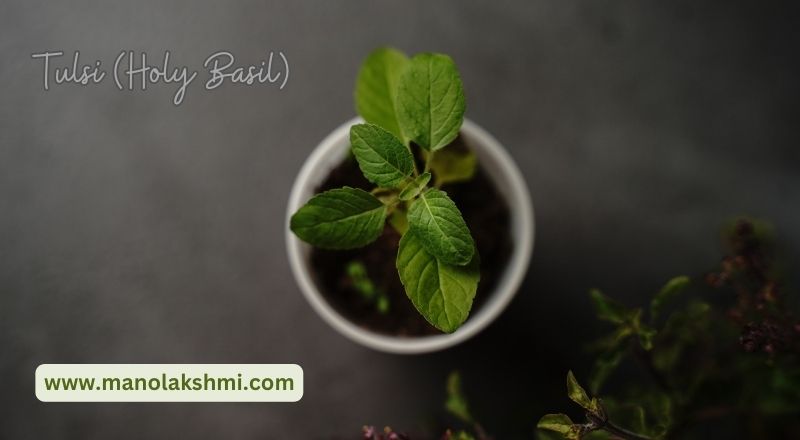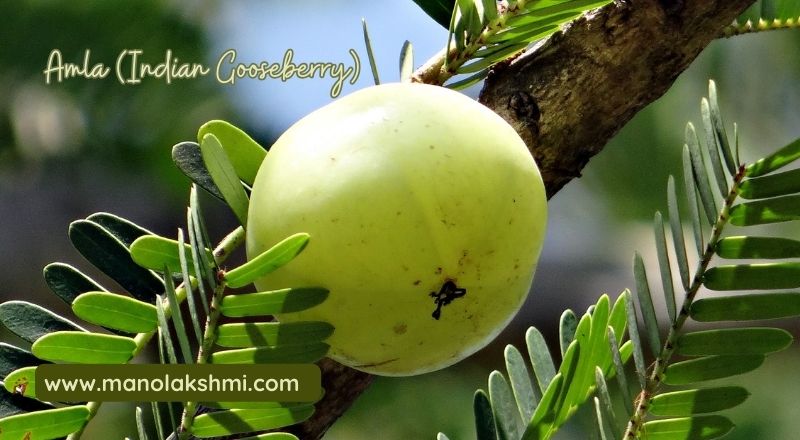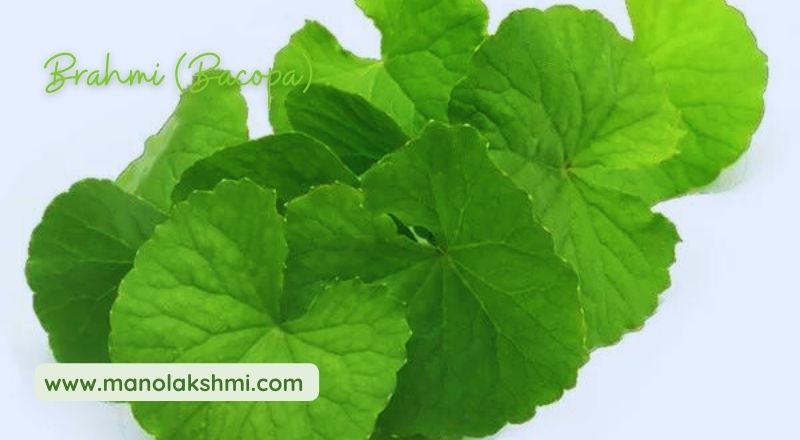What’s Ayurvedic?
Ayurvedic is an ancient holistic healing system that originated over 5,000 years ago in India. It is a Sanskrit term that translates to “the science of life” (Ayur = life, Vedic = science or knowledge). This traditional form of medicine focuses on achieving balance and harmony between the body, mind, and spirit to promote overall health and well-being. Here are some key points to help you understand Ayurveda better:
Ayurvedic
Individualized Approach: Ayurveda recognizes that each person is unique, with their constitution or “dosha” (Vata, Pitta, Kapha). Treatment plans are personalized based on an individual’s dosha to restore balance.
Five Elements: Ayurveda is based on the concept of the five elements (space, air, fire, water, earth) and how they combine to form the three doshas. Understanding these elements helps in understanding the underlying principles of Ayurveda.
“Diet and lifestyle”: Ayurveda places great emphasis on the significance of diet and lifestyle in promoting and maintaining good health. Eating according to your dosha, practicing mindfulness, exercise, and adequate rest are essential aspects of Ayurvedic living.
Herbal Medicine: Ayurveda uses a wide range of herbs and natural remedies to treat various ailments. These herbal medicines are often prepared in the form of powders, teas, oils, and pastes.
Detoxification: Ayurveda believes in the importance of removing toxins from the body to prevent disease and promote well-being. This is done through practices like Panchakarma, which includes therapies like massage, steam treatments, and cleansing diets.
Mind-Body Connection: Ayurveda recognizes the strong connection between the mind and body. Practices like yoga, meditation, and pranayama (breathwork) are used to promote mental clarity, emotional balance, and spiritual growth.
Prevention and Longevity: Ayurveda not only focuses on treating diseases but also on preventing them by maintaining balance in all aspects of life. It aims to promote longevity and a high quality of life by following its principles.
Top Ayurvedic plants
Ayurvedic medicine is a traditional form of medicine that has been practiced in India for thousands of years. It uses natural remedies, such as herbs, to promote good health and prevent illness. Here are some top Ayurvedic plants that are commonly used in Ayurvedic medicine:
Ashwagandha:
This plant is commonly used to reduce stress and anxiety. It is also used to improve physical performance and reduce inflammation in the body.

Ashwagandha, which is also known as Indian ginseng, is a commonly used herb in Ayurvedic medicine. This herb is native to India, Pakistan, and Sri Lanka, and has been used for thousands of years to treat a variety of ailments.
Stress and Anxiety: Ashwagandha, an adaptogen, is known to help the body cope with stress and anxiety. It has been shown to effectively reduce cortisol levels, a hormone released in response to stress, thereby promoting relaxation and mental calmness.
Improving brain function: Ashwagandha has been shown to improve memory and cognitive function in both healthy individuals and those with cognitive impairments.
Boosting testosterone and fertility in men: Ashwagandha has been shown to increase testosterone levels and improve sperm quality and fertility in men.
Supporting thyroid function: Ashwagandha has been shown to improve thyroid function by increasing levels of T4 hormone and reducing levels of TSH hormone.
Reducing inflammation: Ashwagandha has anti-inflammatory properties that can reduce inflammation throughout the body and help prevent chronic diseases.
Ashwagandha is a versatile herb that offers a variety of health benefits. Overall, it is a highly beneficial herb for overall health and well-being. It is available in various forms, including capsules, powders, and teas, and is generally considered safe for most people when taken in recommended doses. However, as with any supplement, it is best to consult with a healthcare professional before taking Ashwagandha, especially if you have any underlying health conditions or are taking medications.
Tulsi (Holy Basil):
Tulsi, also known as Holy Basil, is a herb that is widely used in traditional Ayurvedic medicine. It is considered a sacred plant in Hinduism and is often planted in the courtyards of households in India. Tulsi has numerous health benefits and is known for its adaptogenic properties. Which help the body cope with stress and anxiety.
Some of the health benefits of Tulsi include:

Boosts immunity: Tulsi contains compounds that help to strengthen the immune system, making the body more resistant to infections and diseases.
Reduces inflammation: Tulsi has anti-inflammatory properties that can help reduce inflammation in the body. Which can benefit people with conditions such as arthritis.
Relieves stress and anxiety: Tulsi is an adaptogen, which means it can help the body to cope with stress and anxiety. Enhanced Mental Clarity and Improved Focus can also be achieved with this technique.
Promotes respiratory health: Tulsi has been used in Ayurveda for centuries to treat respiratory conditions such as coughs, colds, and asthma. It is believed to help clear the respiratory tract and reduce lung inflammation.
Supports cardiovascular health: Tulsi has been shown to have a positive effect on the cardiovascular system. Helping to regulate blood pressure and reduce cholesterol levels.
Tulsi can be consumed in several ways, including as a tea, in capsules, or as a supplement.
Seek Advice from a Healthcare Professional Before Making Any Dietary Changes or Taking New Supplements.
Amla (Indian Gooseberry):
Amla, also known as Indian Gooseberry, is a highly nutritious fruit commonly used in Ayurvedic medicine. Its tangy and sour taste makes it a popular ingredient in chutneys, pickles, jams, and juices. Here are some of the health benefits associated with Amla:

A Rich Source of Vitamin C: Amla is a natural source of Vitamin C and is considered to be one of the richest sources of this nutrient. It contains almost 20 times more Vitamin C than an orange. Vitamin C is a powerful antioxidant that helps boost immunity, improve skin health, and prevent chronic diseases.
Boosts Digestion: Amla contains high levels of fiber and water, which helps regulate bowel movements and prevent constipation. It also contains compounds that stimulate the secretion of digestive juices, which helps improve digestion.
Lowers Cholesterol: Amla has been found to lower levels of bad cholesterol (LDL) in the blood, which helps prevent heart disease.
Regulates Blood Sugar: Amla contains compounds that help regulate blood sugar levels, making it a great fruit for diabetics.
Promotes Hair Growth: Amla is known to strengthen hair follicles, prevent dandruff and hair loss, and promote hair growth. It is commonly used in hair oils, shampoos, and conditioners.
Overall, Amla is a versatile fruit that offers a wide range of health benefits. It can be consumed fresh, dried, or in supplement form. Incorporating Amla into your diet can help boost immunity, improve digestion, regulate blood sugar, lower cholesterol, and promote healthy skin and hair.
Brahmi (Bacopa):
Brahmi, also known as Bacopa, is a herb that has been used in traditional Ayurvedic medicine for centuries. It is commonly found in wetlands and muddy shores in India, Nepal, Sri Lanka, and other parts of the world.
Some of the benefits of Brahmi include:

Improving cognitive function: Brahmi has been shown to enhance memory, learning, and overall cognitive function. It is believed to do so by increasing the production of certain neurotransmitters in the brain.
Reducing anxiety and depression: Brahmi has been used as a natural remedy for anxiety and depression. Studies have shown that it can help reduce feelings of stress and anxiety by regulating certain hormones in the body.
Anti-inflammatory properties: Brahmi has been found to have anti-inflammatory properties, which can help reduce inflammation in the body and improve overall health.
Improving skin health: Brahmi has been used in Ayurvedic medicine to improve skin health and treat skin conditions such as eczema and psoriasis. It is believed to do so by reducing inflammation and promoting healthy skin cell regeneration.
Lowering blood pressure: Some studies have suggested that Brahmi may help lower blood pressure by relaxing blood vessels and improving blood flow.
Overall, Brahmi is a versatile herb that can provide a range of health benefits. It can be consumed in various forms, including as a tea, supplement, or as an ingredient in certain foods. However, it is important to consult with a healthcare professional before incorporating Brahmi into your diet or supplement regimen.
Aloe Vera:
This plant is commonly used to treat skin conditions, such as burns and cuts. Other benefits of this include improved digestion and a strengthened immune system.
Aloe Vera is a succulent plant with thick, fleshy leaves that contains a gel-like substance with numerous health benefits. It has been used for medicinal purposes for centuries and is a popular ingredient in various skincare and beauty products.
Here are some benefits of Aloe Vera:

It helps soothe sunburns and minor burns due to its cooling effect and anti-inflammatory properties. “Applying Aloe Vera gel to the affected area can help to alleviate discomfort and promote the healing process.”
Aloe Vera can help improve skin health and reduce acne due to its antibacterial and anti-inflammatory properties. Additionally, it can aid in minimizing the visibility of fine lines and wrinkles.
The plant has a high water content, making it a great natural moisturizer for both skin and hair. It can help hydrate and nourish dry skin and prevent dandruff and itchy scalp.
Aloe Vera can help boost the immune system and improve digestion when consumed as a juice. It contains vitamins, minerals, and antioxidants that help fight off harmful bacteria and promote healthy digestion.
The plant may also have anti-cancer properties, although more research is needed to confirm this.
Overall, Aloe Vera is a versatile plant that can provide numerous health benefits and is worth incorporating into your daily routine.
Turmeric:
Turmeric is a spice commonly used in cooking and conventional medicine. It is also used to boost immunity and improve mind function. It is known for its vibrant yellow color and distinct flavor, which is slightly bitter and earthy. However, turmeric also has several potential health benefits that make it a popular ingredient in natural remedies. Here are some of the ways that turmeric can be beneficial for your health:

Anti-inflammatory properties: Turmeric contains compounds that have been shown to reduce inflammation in the body, which can help alleviate symptoms of conditions like arthritis and inflammatory bowel disease.
Antioxidant effects: Turmeric contains antioxidants that can help to protect your cells from damage caused by free radicals, which are unstable molecules that can contribute to the development of chronic diseases like cancer and heart disease.
Brain health: Some studies have suggested that turmeric may have cognitive benefits, potentially helping to improve memory and reduce the risk of neurological conditions like Alzheimer’s disease.
Digestive health: Turmeric has been used in traditional medicine to treat digestive issues like bloating and gas. It may also help to reduce inflammation in the gut and improve overall digestive function.
Skin health: Turmeric has antibacterial and anti-inflammatory properties that may make it effective for treating skin conditions like acne and eczema.
While turmeric is generally considered safe, there are some potential side effects to be aware of, particularly when taken in large doses. These can include stomach upset, nausea, and diarrhea, as well as interactions with certain medications. As with any supplement or herbal remedy, it’s important to talk to your doctor before adding turmeric to your routine.
Neem:
Neem tree has antibacterial, antifungal, and antiviral properties, making it effective against a wide range of infections.
The neem tree is a powerful natural remedy that has been used for centuries to treat a variety of health issues. In addition to its antibacterial, antifungal, and antiviral properties, the neem tree also has several other health benefits. Below are some of the remarkable benefits of the neem tree:

Supports oral health: Neem oil is effective in fighting against oral bacteria that cause gum disease, tooth decay, and bad breath. This ingredient is frequently found in toothpaste, mouthwash, and various other oral care items.
Promotes skin health: Neem oil is a natural moisturizer that helps to nourish and protect the skin. It is known for its ability to soothe irritated skin, reduce inflammation, and treat acne.
Boosts immunity: The neem tree is rich in antioxidants and immune-boosting compounds that help to strengthen the immune system. Regular consumption of neem leaves or neem-based supplements can help to protect against various illnesses and infections.
Supports digestive health: Neem leaves have been traditionally used to treat gastrointestinal issues such as constipation, bloating, and diarrhea. They are believed to help regulate blood sugar levels and improve liver function.
Repels insects: Neem oil is a natural insecticide that is effective in repelling a wide range of insects, including mosquitoes, fleas, and ticks. It is commonly used in insect-repellent sprays and lotions.
The neem tree is a versatile and powerful natural remedy with numerous health benefits. Its antibacterial, antifungal, and antiviral properties make it an effective treatment for various infections, while its other health benefits make it a valuable addition to any health and wellness routine.
Ginger:
This spice is commonly used to treat digestive issues, such as nausea and bloating. It is also used to reduce inflammation in the body and boost immunity.
Ginger is a popular spice that has been used for centuries in traditional medicine and cuisine. The ginger root is native to Southeast Asia and is used extensively in cooking and medicine. Ginger has a spicy and slightly sweet flavor, and it is commonly used in both sweet and savory dishes.
Here are some interesting facts about ginger:

A Closer Look Gingerol, a compound found in ginger, has potent anti-inflammatory and antioxidant properties that can promote overall health.
A Ginger has been shown to help alleviate nausea and vomiting, especially in pregnant women and people undergoing chemotherapy.
Ginger may help reduce muscle pain and soreness, making it a popular supplement among athletes and fitness enthusiasts.
A Ginger has been used in traditional medicine to help treat a variety of ailments, including digestive issues, respiratory infections, and menstrual cramps.
Ginger can be consumed in a variety of forms, including fresh, dried, powdered, or as a supplement.
Ginger can also be used to make tea, which is a popular home remedy for colds and flu.
Overall, ginger is a versatile and beneficial spice that can be enjoyed in a variety of ways. Whether you’re adding it to your favorite dish or brewing it into a cup of tea, ginger is a great way to add flavor and health benefits to your diet.
Fenugreek:
Fenugreek, an herb known for both its medicinal and culinary benefits, has been utilized for centuries Here are some interesting facts about this versatile herb:
 The Fenugreek is native to the Mediterranean region and Asia, but it is now grown in many parts of the world.
The Fenugreek is native to the Mediterranean region and Asia, but it is now grown in many parts of the world.
The Fenugreek plant’s seeds have a multitude of uses in both cooking and traditional medicine.
Fenugreek has a bitter taste and a strong aroma, which is why it is often used in small quantities.
In Indian cuisine, fenugreek is used in curries, chutneys, and pickles. It is also a key ingredient in the spice blend garam masala.
Fenugreek is believed to have several health benefits, including improving digestion, reducing inflammation, and regulating blood sugar levels.
A Fenugreek supplements are commonly used by breastfeeding mothers to increase milk production.
Fenugreek is also used in natural hair care products to promote hair growth and prevent dandruff.
Fenugreek oil is used topically to treat skin conditions such as eczema and acne.
Despite its many benefits, fenugreek can cause side effects in some people, including gastrointestinal issues and allergic reactions.
It is always best to consult with a healthcare professional before adding fenugreek supplements to your diet.
Licorice:
This plant is commonly used to soothe sore throats and coughs. It is also used to reduce inflammation and improve digestion.

Licorice is a popular sweet treat that has been enjoyed for centuries. The licorice plant roots, found in Europe and Asia, are used to make it. Licorice has a distinct flavor that is both sweet and slightly bitter, and it is often used in candies, teas, and other confections.
Here are some interesting facts about licorice:
Licorice root has been used for medicinal pursuits for thousands of years. It was used by the ancient Egyptians, Greeks, and Romans to treat a variety of ailments, including coughs and stomach problems.
The flavor of licorice comes from a compound called glycyrrhizin, which is found in the root of the licorice plant. This compound is about 50 terms Sweeterr than sugar.
The Licorice is often used in traditional Chinese medicine to treat conditions such as ulcers, sore throats, and even liver disease.
In addition to its medicinal uses, licorice is also used in the production of tobacco products and some alcoholic beverages.
While licorice is generally considered safe to consume in moderation, excessive consumption can lead to health problems such as high blood pressure and low potassium levels.
There are many different types of licorice candies available, including twists, bites, and even licorice pipes!
Overall, licorice is a unique and tasty treat with a fascinating history and a variety of uses. Whether you enjoy it as a candy or a tea, there’s no denying the appeal of this sweet and slightly bitter flavor.
Click here: Pear fruits: Pears are one of the strongest fruits
